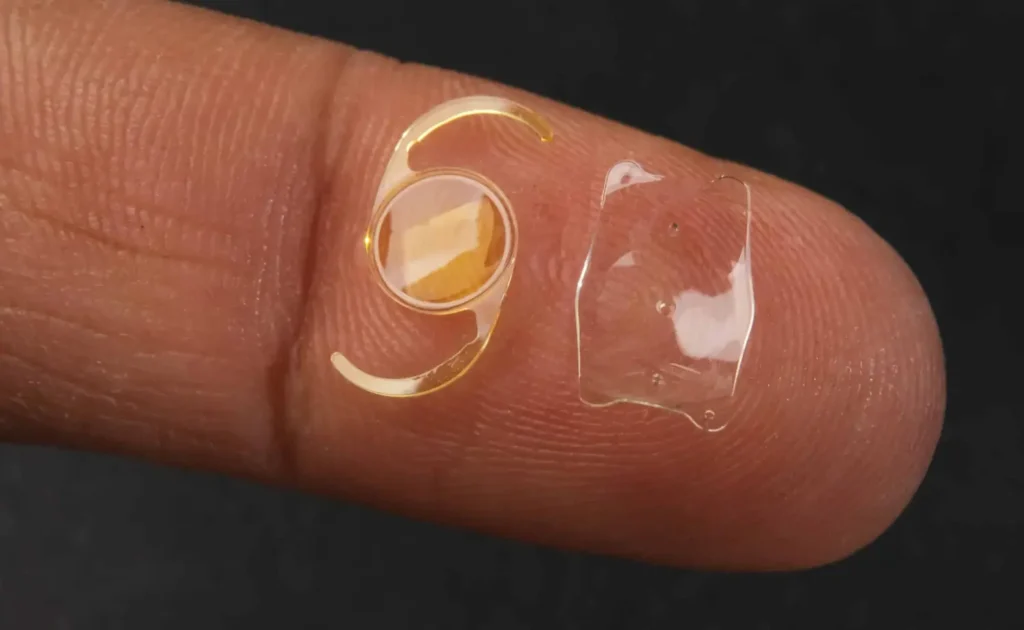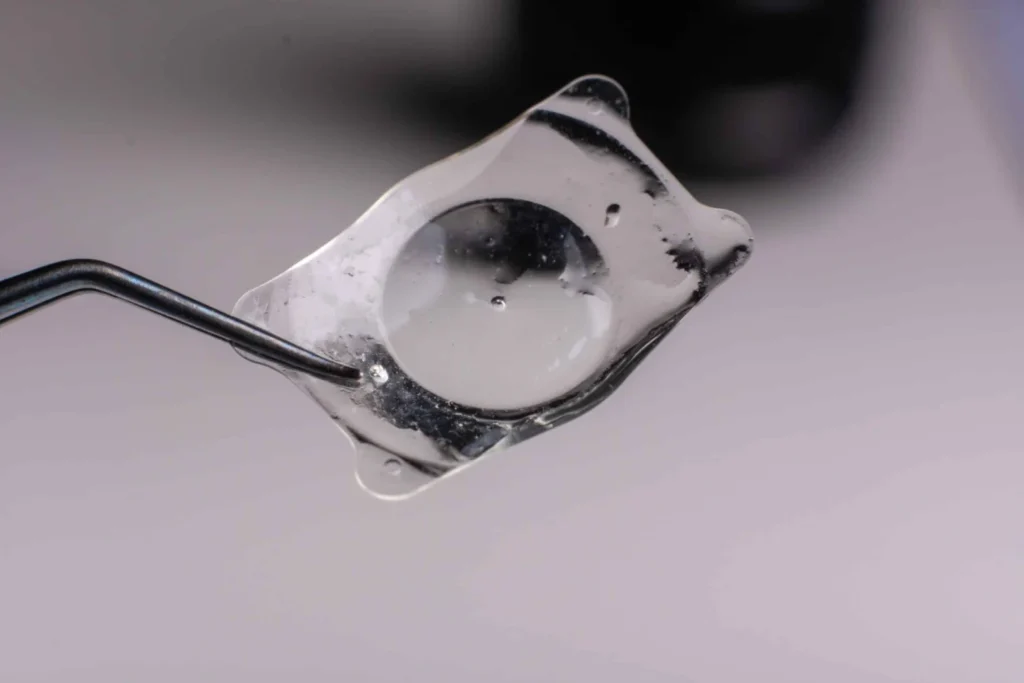If you have keratoconus, you know how frustrating it can be to struggle with blurry vision, even with glasses or contact lenses. You might have heard about Implantable Collamer Lens (ICL) surgery and wondered if it could be a solution for you. In this blog, we will explore whether ICL surgery is a good option for people with keratoconus. We’ll explain what keratoconus is, how ICL surgery works, and the benefits and risks of this procedure. So, let’s dive in and explore!
Contents
Understanding Keratoconus and Its Impact on Vision

Keratoconus is a progressive eye condition where the cornea, the clear front part of the eye, thins and begins to bulge into a cone-like shape. This distortion affects how light enters the eye, leading to blurry and distorted vision.
How Keratoconus Affects the Cornea and Vision?
- Corneal Thinning and Bulging: In keratoconus, the cornea weakens and changes shape from a dome to a cone. This irregular shape causes light to scatter as it enters the eye, resulting in blurred and distorted vision.
- Vision Changes: People with keratoconus often experience difficulty seeing clearly, both up close and at a distance. They may notice halos around lights, double vision, and increased sensitivity to light.
Is ICL Surgery the Best Option in the Case of Keratoconus?

ICL surgery can be an excellent option for those with keratoconus, especially if other treatments have not provided satisfactory results. However, it is crucial to consult with an eye specialist to determine the best treatment plan tailored to your specific condition.
Benefits of ICL Surgery for Keratoconus
- Improved Vision Quality: ICL surgery involves placing a specially designed lens inside the eye, which can significantly enhance vision clarity by correcting the refractive errors caused by keratoconus.
- Reversibility: One of the key advantages of ICL surgery is that the lens can be removed or replaced if necessary, offering flexibility in case your vision needs to change over time.
- Minimal Corneal Alteration: Unlike other surgical options, ICL does not involve reshaping or removing parts of the cornea, making it a less invasive choice with a shorter recovery time.
Considerations and Limitations
- Not everyone with keratoconus is a candidate for ICL surgery. The procedure is typically recommended for those with stable keratoconus and adequate corneal thickness.
- ICL surgery can be more expensive compared to other treatments like contact lenses or glasses.
- As with any surgical procedure, ICL surgery comes with risks, including infection, cataract formation, or increased intraocular pressure. It’s essential to discuss these risks with your doctor to make an informed decision.
If you’re considering ICL surgery, EyeMantra offers expert consultation to help you make an informed decision.

Your Help Can Make a Difference!
Cataract Is The Biggest Reason For Blindness!
With Every Donation, You’re Gifting a Cataract Surgery To Someone in Need!
ICL Procedure for Keratoconus
If you’re considering ICL (Implantable Collamer Lens) surgery for keratoconus, it’s essential to understand how the procedure works and what to expect. This section will walk you through the ICL procedure, step by step.
- The ICL Surgery Process
- Anesthesia: The procedure is typically performed under local anesthesia, meaning you’ll be awake but won’t feel any pain in your eye.
- Lens Insertion: A tiny incision is made in the cornea, and the ICL, which is a thin, flexible lens, is carefully inserted into the eye. The lens is positioned behind the iris (the colored part of the eye) and in front of your natural lens.
- Positioning: The surgeon will ensure the ICL is properly positioned and securely in place, allowing it to correct the refractive error caused by keratoconus.
- Closing the Incision: The small incision usually heals on its own without the need for stitches.
- Post-Procedure Care
- You may experience mild discomfort or blurred vision immediately after the procedure. Your doctor will provide eye drops to prevent infection and reduce inflammation.
- Expected Results and Recovery
- Many patients experience significantly clearer vision within a few days, although it may take a few weeks for your vision to stabilize fully.
- The recovery time is relatively short, with most people returning to their normal activities within a week.
Conclusion
At EyeMantra, we understand the challenges that come with keratoconus and the desire for clear, stable vision. Our expert team is here to help you explore the best treatment options, including ICL surgery, which starts from 50 thousand per eye. We also offer convenient EMI options to make your treatment more affordable.
If you’re considering ICL surgery for keratoconus, don’t hesitate to take the next step towards better vision. Book your free consultation by calling our helpline number. Our specialists are ready to guide you through the process and answer any questions you may have.
Book your free appointment now at +91 9711116605.
